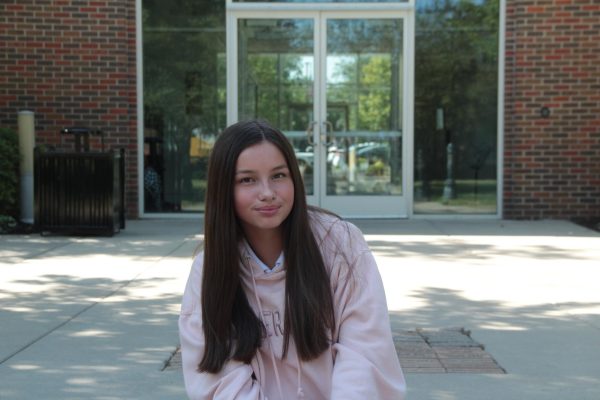Re-understanding hip hop music
Young people are often judged for listening to hip-hop music. Older people believe that the message of hip-hop music is degrading yet, we fail to ask ourselves why artists lyrics are the way they are. Their lyrics are direct evidence of systemic racism and we need to listen.
March 5, 2018
“This is not real music.”
This is something my mother has repeatedly expressed. Whether we’re in the car or just chilling at home listening to hip-hop music on the radio, those words never fail to come out of her mouth. However, I disagree. Modern hip-hop music is different from that of the past, but that does not make it less real.
Our generation tends to get criticized and stereotyped by older generations for the genre of music we listen to. Misunderstanding rap and hip-hop music is a big problem in our society today. Hip-hop artists like 21 Savage, Migos, Drake, Cardi B, etc. have become fairly popular in recent times, and older people don’t understand them. They believe hip-hop and rap are ruining pop culture. A lot of hip-hop artists talk about sex, drugs and money, because it’s their reality. It’s not fair to judge an artist for expressing their lives to us through their music. we should focus on the reason why they came up to the top from where they did, which has a much deeper meaning.
Hip-hop music’s foundation is systemic racism. Last month, the jobless rate among whites was 6.6%; among blacks, 12.6%. Rapper J. Cole is very outspoken about the hardships that come with being a person of color. In his music, he addresses the negative stereotypes of black people. One being the only way a black man can become successful is by “selling dope, rapping, or go to the NBA.” Because this belief is so ingrained in African Americans head, their mind is limited to few possibilities of success. Out of every 100,000 Americans about 700 are incarcerated, but out of every 100,000 black men, over 4,000 are incarcerated; mostly for drugs.
And one of the many effects of that trend is that combined with felony disenfranchisement laws, it means 13% of black american men are denied their right to vote. In 2010, black americans made up 13% of the population but had only 2.7% of the country’s wealth. The median net worth for a white family was $134,000, but the median net worth for a hispanic family was $14,000, and for a black family it was $11,000. The median wealth for a single white woman has been measured at $41,000, while for hispanic women it was $140, and for black women, $120.
In a way, these artists have created a platform for those who have never believed in themselves or people who come from the same beginnings they have. For example, a lot of people condemn Cardi B because she’s a former pole dancer. While that may not be the ideal job, we have to recognize her circumstances. She is mixed with dominican and trinidadian and grew up in a poor, latino neighborhood in the Bronx. As a woman of color in a working-class environment, , she already had barriers that block her from being successful. She’s exposed to things an upper class suburban person will never have to be exposed to and the only way she knows how to make it out of her struggle is to rap about it. Fortunately, her career has came out as a success.
Hip-hop artists are crying for help but we aren’t listening. Their struggles and hardships is one we take lightly, only paying attention to the cool beats of the songs. Once we can replace the negative image of the hip-hop genre with an image of seriousness, we can have hope that their struggle will be reduced in the near future.











